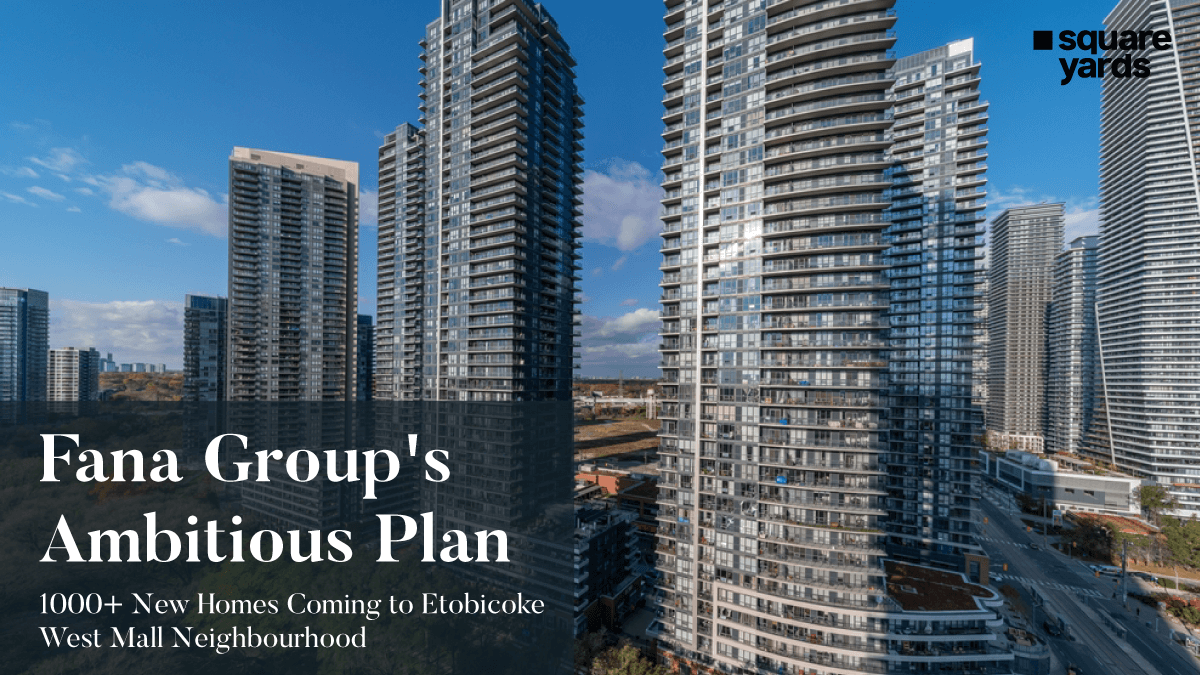Canadian Housing Market: Investment Hotspots, Market Trends, and Outlook
The Canadian housing market 2425 offers a variety of attractive locations for real estate investment, each with unique characteristics and

Maximum 4 project can be compared at one go.

Toronto, the largest city in Canada, is situated on the northwestern shore of Lake Ontario. It is home to a diverse population of over 2.9 million people. A dynamic metropolis with a vibrant culture, it has a strong economy, and a deep commitment to the arts, innovation, and sustainability. It is one of the leading global cities, with a broad range of attractions, including world-class museums, galleries, parks, and green spaces, as well as an array of shopping, dining, and entertainment options. Needless to say, Toronto is an exciting place to work, live, and visit. Here’s everything you need to know about Toronto’s City Development Plan.
Like any other city development application process, it is important to meet the city staff for the purpose of discussing your development proposal. This will help you get a better perspective at every level. It will also help you know all the prerequisites for submitting your proposal. Under this step, consulting the city staff is majorly encouraged in alignment with section 5.5 of the Toronto Government Development Plan. This entire process is done to improve the overall experience of every person and authority involved. Needless to say, the pre-application process is more structured and thus easy to understand.
It is very easy to request the pre-application consultation meeting. All you need to do is email a prepared PDF submission package to your planning consultant. Please note that your package must include:
You will be engaging with many official personnels from the city staff. You may also have to contact outside agencies for discussing all kinds of additional requirements. These agencies usually include the Toronto Region Conservation Authority or the Ministry of Transportation.
After the meeting, you will get a checklist for Toronto City Development pre-application planning. Also, you would be advised to get any kind of outside support that you may need from officials like planners, architects, lawyers, etc. And once you have prepared your submission, you will need to get in touch with the district planning consultant for properly setting up an appointment for submitting your Toronto Development Plan application. With this, you will be initiating the process for formally reviewing your Toronto Government Development plan.
The STAR (Streamlining the Application Review) process is basically done to review the applications. These applications are further divided into two parts:
1) Complex - These city planning and development applications involve developments that can have a substantial impact on the community. These usually are inclusive of:
2) Routine - These are applications that are smaller in scope and also have issues which are relatively easier to solve. These usually include:
The Gold Star program aims to aid the overall economic development, business city planning, along with industrial, commercial and institutional planning and building projects in the city of Toronto. Every project subject to this service is given a dedicated Economic Development Officer as part of the city planning and development. The role of the officer is to give customized one-on-one assistance for the review along with the approval process. All the staff members actively offer the applicants and other city divisions along with agencies enough time to identify, review, and also resolve all the issues while ensuring that the Gold Star project gets prompt attention.
The objective of the authorities is to help resolve all kinds of issues and problems that the people might be facing. These issues are usually related to:
For the unversed, each project is assigned a particular Economic Development Officer as part of the City Planning or Toronto Building case-managed team. The team is responsible for providing a customized one-on-one help to the businesses to review the entire approval process. The staff members here proactively work with the applicant and agencies who are involved in the entire city planning and development process of reviewing.
For the unversed, up to 60 percent of the increased property tax revenue generated by new development is directly shared between the city along with the property owner. And being a part of the IMIT program, the Tax assistance program also offers property tax relief companies in properly cleaning up the contaminated sites and also develop all the underutilized or (if any) vacant properties.
This objective of this program is to speed up affordable housing construction by offering the required financial aid to the city. It has been engineered and designed in the first place to help the city achieve all its goals of housing. For the unversed, under this action plan, approval of more than 40,000 rental homes is due by 2030.
Under section 17 of the Planning Act, it is imperative for a city to have a properly well-established plan. This official Toronto Government Development Plan is nothing but a proper legal document that has been approved by the City Council. It describes the objectives as well as the policies for the future land uses. At a fundamental level, the official plan is the essential blueprint of how the city will be growing and expanding for the next 30 years. This also takes into account how the new housing along with the industry, offices and other lands will be used. The official plan also establishes all the important policies related to improvement of the city’s services.
On the other hand, under the zoning by law, section 34 of the Planning Act grants the authorities to firmly implement the land use controls through zoning by-laws. Zoning by-law is a legal document that implements the policies and objectives described in the official plan and regulates the use as well as the city planning and development in Toronto of the land and buildings by:
If you plan on building a property that does not conform with the official plan, you will need to apply for an official amendment plan. If in case, you are planning development in Toronto, or in any way, alter your current property, and if it does not conform with zoning by the law, then, in that case, you will need to apply for a site-specific official amendment that resonates to the ‘zoning by the law’.
It is important to ensure that the city’s interests are properly met. For this, the city will need submission of a number of information items with your development application(s). To ensure that everything goes well, a pre-application consultation meeting is recommended for assisting and must be given as part of initial development application submission.
The review of the procedure has the following process:
Submission of Toronto Government Application - After receiving your application, the city will be circulating your application to the city divisions as well as external agencies. This will be done for a properly detailed technical review. After this, the city will also review and issue a decision on the total completeness of your application within 30 days. And within 14 days of submitting your application, you will be required to post a sign on the subject property in accordance with the procedures outlined in the submission form.
Complete Application Decision - The authorities will take your application as complete if all the submission application submission requirements are met properly. Within 30 days of payment, you will be advised in writing about the completeness or the incompleteness of your application, the assigned star stream and the application file number.
Application Circulation - Your application will be circulated to a number of City Divisions/Agencies, for a proper detailed technical review.
Preliminary Report - With the Preliminary report, it is indeed possible to raise and discuss various issues of concern for a final report that needs to be sent to the city council.
Community Consultation Meeting - A community meeting is held and organised by the staff of planning and is majorly attended by the ward councillor. This meeting offers staff an opportunity to publicly present your proposal. This input is taken into account by the city staff at the time of discussing revisions.
Response to Applicant - The planner is assigned to your application(s) coordinated responses from the circulation and the political input received through the consideration of the Preliminary Report.
Application Revision and Resubmission - In response to the comments on your initial submission, you may have to revise your proposal while offering any additional information and material. Please note that while revising the application, you must include a proper covering letter with all the important resubmissions. These resubmissions must clearly indicate how and where your proposal has been revised.
Public Meeting at Community Council - Under the Planning Act it is required that the city holds a Public Meeting. This responsibility has been given to the four community councils. And after your application has been given the final go ahead, the city will issue a formal notice. This notice will be about the Public meeting happening in accordance with the Planning Act.
City Council Decision - The community council makes recommendations on behalf of the application to the city council for a final decision. And based on these recommendations, the city council can also amend the official plan via the enactment of an amending by law.
Official City Planning and Development or Zoning by law - The Planning Act provides an administrative process which can be used to appeal city council’s decision for planning approval tribunal (LPAT) and on amending the official plan. This city must also issue a notice of approval within 15 days of the City Council’s decision.
The draft plan of subdivision is mainly used for dividing larger parts of the land and converting them into lots and blocks. These blocks contain streets, parks and municipal services. As per the section 51 of the Planning Act, the objective is to provide the orderly servicing as well as the overall city planning and development of the larger lots/units of land. It also determines if the land is suitable for the proposed subdivision and does it have any more requirements in terms of utilities and facilities such as municipal services or school sites.
If you plan to divide your land into lots, units or blocks then you will need to apply for a Draft Plan of Submission, a Draft Plan of Condominium, a Part Lot Control Exemption Application, along with Consent of Severance. This particular section of the City Development Guide focuses on the Draft Plan of subdivision applications. Also, draft plans of subdivision applications are used for dividing larger units of land into a significant number of lots and blocks.
Submission of Application - Within 14 days of submitting the application, you will be required to post a sign on the subject property. This would be done in accordance with procedures specifically outlined in the application form. Also, you can contact the district planning consultant to obtain the name of the planner.
Complete Application Decision - The Toronto Official Plan offers the City the authority to require information, studies along with plans for a complete application submission which goes beyond the minimum requirement of the Planning Act. Within 30 days of doing the payment, you will be advised in writing about the completeness or the incompleteness of your application. A complete application procedure will be allowing a more comprehensive and efficient review of the supporting material.
After the decision is made, the application is circulated to a number of City Divisions as well as agencies, Boards and Commissions for a detailed analysis and technical review. A proper and complete application submission allows the staff to undertake a more comprehensive review of your proposal.
The staff may hold a community meeting with a local community on your draft plan of a subdivision application. This meeting is usually attended by the Ward Councillor. Also, the meeting offers the staff to outline the overall planning process to the local community. These inputs are taken by the City Staff while discussing overall revisions to your proposal.
The planner assigned to your application is responsible for coordinating the responses that directly come from the circulation of the application.
What you get as feedback, you may need to revise your proposal or perhaps provide additional information as well as material needed. Revised or additional information along with material must also be discussed, co-ordinated and then submitted to the planner. It is also important to note that you must be including a proper cover letter with all your resubmissions. This clearly indicates how and where your proposal has been revised.
This involves the following steps:
1) Recirculating the completely revised proposal to the city divisions or to the agencies
2) Holding discussions over any kind of new material
3) Conducting consultations with the ward Councillor
4) Undertaking resubmission's along with re-circulations
As per the Planning Act, the city organises and holds Public Meetings at regular intervals. This is done to consider all applications for Plans of Subdivision. Also, once your application is finalised, the city will be issuing a proper formal notice of the Public Meeting in accordance with the requirement of the Planning Act. You will also need to post the date and time of the Public Meeting on the sign erected on the property.
The City Council has delegated the approval authority for Plans of Subdivision to the Chief Planner while making recommendations to the Chief Planner which is based on the input of the Community Council and Growth Management Committee.
The Draft Plan Approval by the chief planner is received in a period of 9 months. The Planning Act offers a proper administrative process to appeal the decision to the Local Planning Approval Tribunal on the Draft Plan of Subdivision applications. For this, the city must be issuing a notice within a period of 15 days of the Chief Planner’s draft approval.
The condominium act has five types of condominium corporations in total. These are as follows:
As per section 9(2) of the Condominium Act, the city has the authority to regulate land units/buildings via Plans of Condominiums. Along with this, it also ensures the rights of the future owners are not decapitated in any way.
As per the Section 9(2) of the Condominium Act states that an application for condominium is processed in the same way as a Plan of Subdivision which comes under the section 51 of the Planning Act. This act also grants the city complete authority for regulating the land divisions. This authority is also used for regulating buildings and dividing them into parcels. Plus, it also ensures that the rights of the owners who will be owning the property in future are fairly transferred from you to them. And if you are planning to divide your land into lots, blocks you must be applying for any one of the following:
The objective of the Pre-application consultation is primarily to check if there are any key issues which may or may not be required for approvals, supporting drawings and also reporting and studying what will be required for your formal submission. It will help them achieve a complete application status in resonance with the Planning Act.
1) As the city receives your application, it will further circulate your application to the city divisions 2) Give a written confirmation about the completeness of your application
The Toronto Official Plan gives the city complete authority for required information and plans for a complete application submission. And within 30 days of your making the payment, you will be informed about the completeness and incompleteness of the application. And accordingly, you will need to take proper measures for the same.
After this, your application will then be circulated across a number of City Divisions and/or Agencies, Boards and Commissions. Complete submission of the application allows the staff to undertake a more comprehensive review of your proposal.
The staff may or may not hold a meeting with the local community on the standard or phased plan of condominium application.
The planner assigned to your application helps in coordinating responses from the circulation. These responses are then further forwarded for the purpose of revising your proposal.
Taking into account the comments on your submission, you may have to revise your proposal and/or also offer additional information to the city. Information based on this material should be discussed, coordinated and submitted to the planner. However, please note that each resubmission must include a cover letter.
1) The steps for this involve recirculating the entire revised proposal to the city divisions as well as agencies
2) Holding further discussions over new material or technical matters and consulting with ward councillor
3) Undertaking recirculations and resubmissions
The chief planner is responsible for issuing draft approval of the user's application. The city must be issuing a complete submission of the application. The Planning Act offers an administrative appeal process once the city approves your Plan for Condominium.
1) The plans submitted for final approval should be at all times be in accordance with the approved draft plans specified.
2) The owner must ensure that all the taxes have been paid in full and provided to the district Director of Community Planning.
3) The owner should file a copy of the Declaration and Description complete copy with the district director of community planning.
4) Schedule ‘G’ is the certification of the project architect that all the buildings have been constructed in accordance with the regulations which are made under the condominium act.
5) The owner must also make sure that there are separate water metres for different components of the building.
6) The owner must also file copies of the following certificates with the district director.
This requires the following steps:
This requires the following steps:
Under section 114 of the City Toronto Act and Section 41 of the Planning Act, all of its official plan areas are called the ‘areas of site plan control’. This authority provides a process which examines the overall technical aspects of city development and ensures that it is properly compatible with the surrounding areas in terms of various factors such as economic, social, as well as environmental factors.
It is imperative to apply for a Preliminary Project Review for confirming that your property/building requires Site Plan Control approval and it is also important to ensure that your proposal complies with the zoning by-law. If, in case, your property is subject to site plan control approval, you will need to build strictly according to plans that have been approved by the chief planner or his junior designates.
Section 50 of the Planning Act grants the city the sole authority to propose a law for exempting lands within a plan of subdivision which is from the Part Lot Control provisions in the Act. This process is used for lifting up any kind of Part Lot Control Restrictions from lands within the registered plans of the subdivisions with the aim to produce land/building units for sale.
A Part Control Application is usually in place for a limited period of time after which the by law expires and the Part Lot Control provisions of the Planning Act come into force.
To ensure that the City’s interests are properly met, the City requires the submission of a number of information items with the planning application. For this, a pre-application meeting is recommended and helps in assisting to determine which of the requirements must be provided as part of your application. Also, the level of detail required for most of the reports and studies listed below can vary. This would depend on the nature of your property as well as your proposal. All these submissions must include a covering memo with either Planning Application Checklist PDF received directly from the Pre-Application meeting.
The Review Procedure for the Site Plan Control includes the following points.
Toronto City Council has appointed a Committee of Adjustment which consists of citizens as the members. These councils regularly hold hearings related to minor variances as well as consents.
The government has amended the Planning Act and removed the third-party rights to appeal Committee of Adjustment decisions. The Minister of Municipal, the Minister of Municipal Affairs and Housing are given permission to appeal for decisions of the committee of Adjustment.
All the information that is collected on the committee of Adjustment application form is present on the public record. All the public hearings are recorded on video and then posted on YouTube.
All the committees of the adjustment hearings are to be held as Virtual Public Hearings until any further public notice.
1) Through written submission: You will need to submit the comments strictly only in a PDF format via email.
2) Through Webex: You will need to join the webex virtual meeting.
3) Through Youtube: You can watch all the recorded meetings via Toronto Youtube Channel.
The Canadian housing market 2425 offers a variety of attractive locations for real estate investment, each with unique characteristics and

When you want to buy a home in Toronto, finding the best mortgage rates Toronto can save you a lot

Do you also encounter difficulties understanding seller's permits and resale certificates? If yes, then worry not, as this is common

Purchasing and Constructing land in Ontario can be a daunting task. You never know what might happen. There are numerous
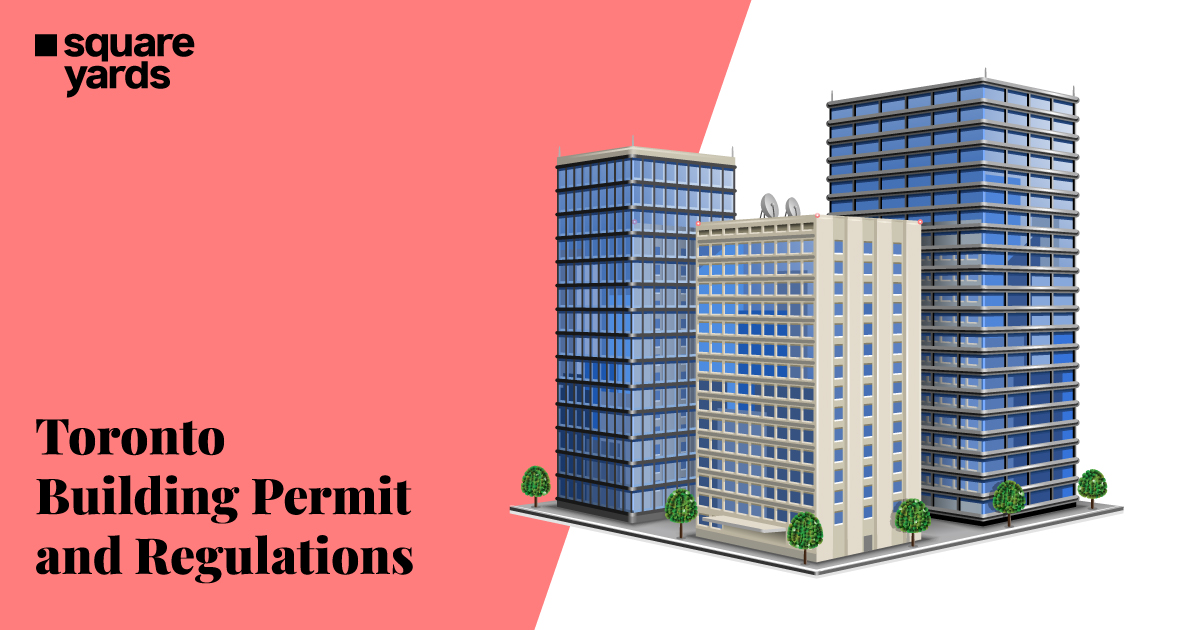
Toronto stands out as Canada's most renowned city. Thanks to its vibrant culture and abundant living and working opportunities, it's
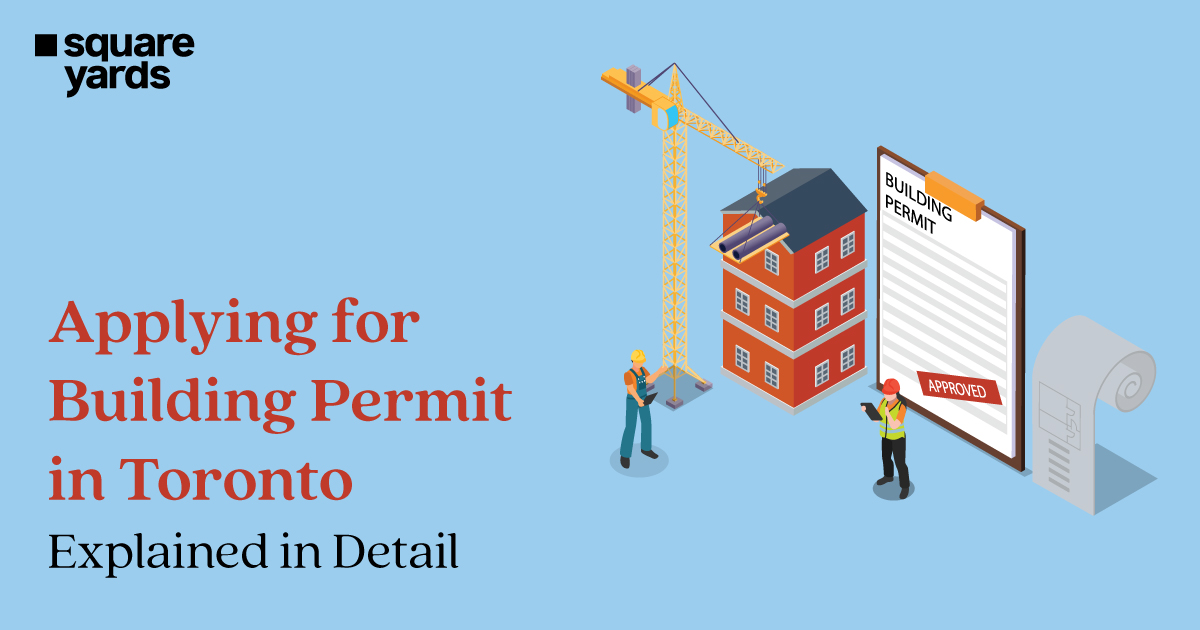
The MAT (Municipal Accommodation Tax) is imposed on short-term rentals in Toronto. As a registered operator of short-term rentals, you
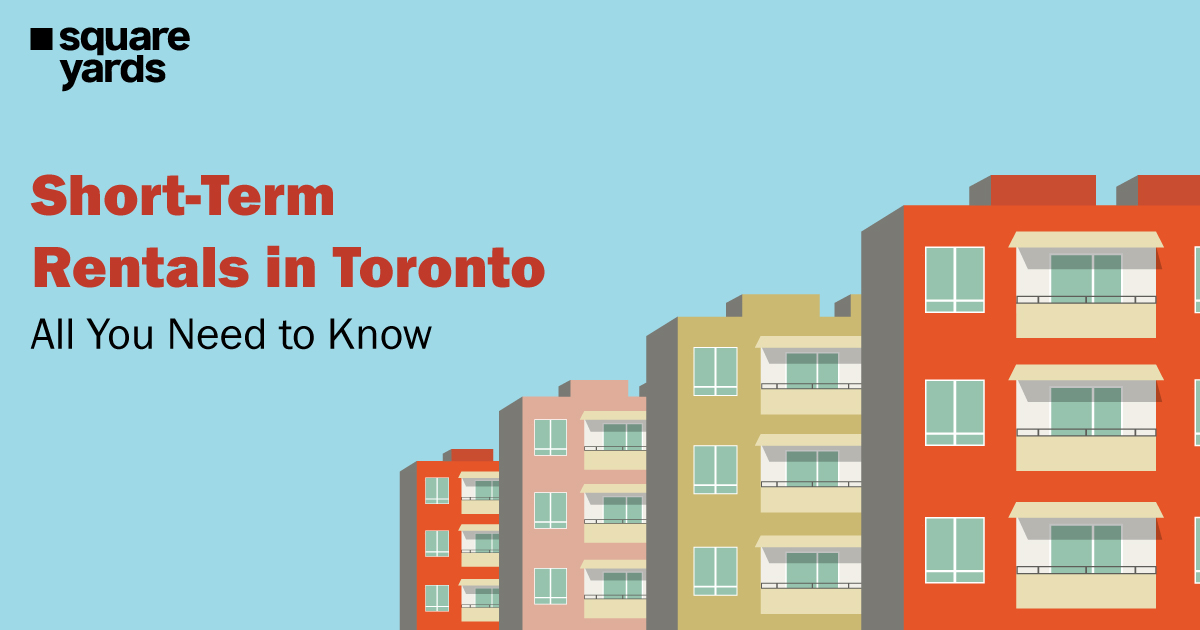
Pre-Authorised Payment ProgramsTo enrol in a Pre-Authorised Tax Payment Program (PTP), one must complete a Pre-Authorised Tax Application form. By
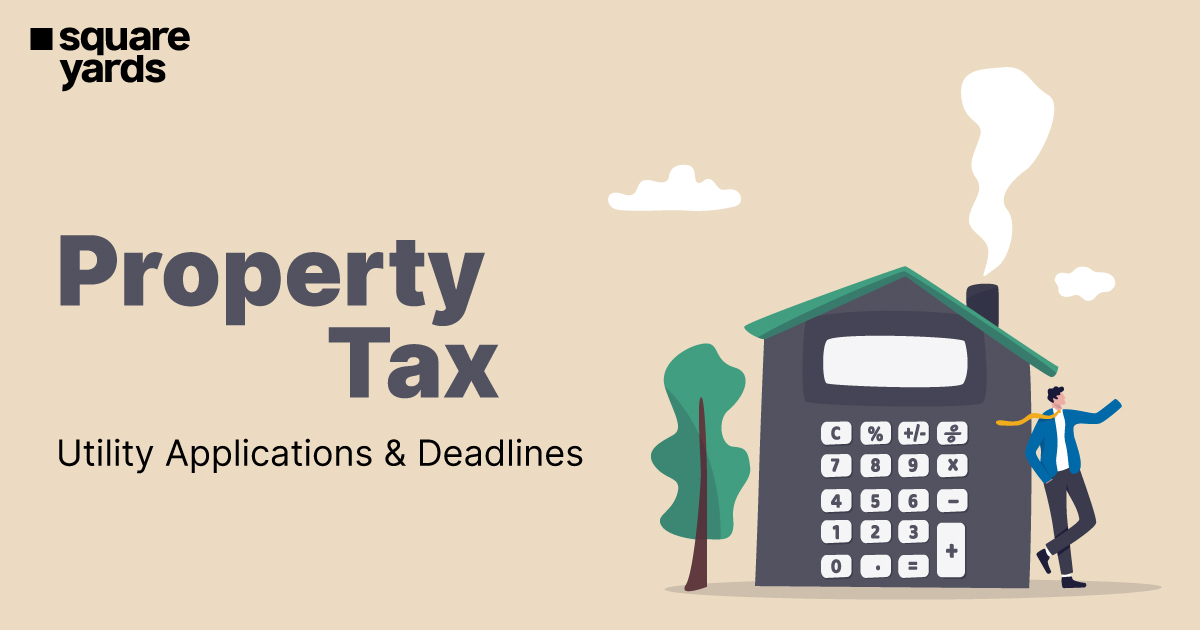
For a government of any country, property taxes are one of the most practical ways to earn revenue. Every homeowner
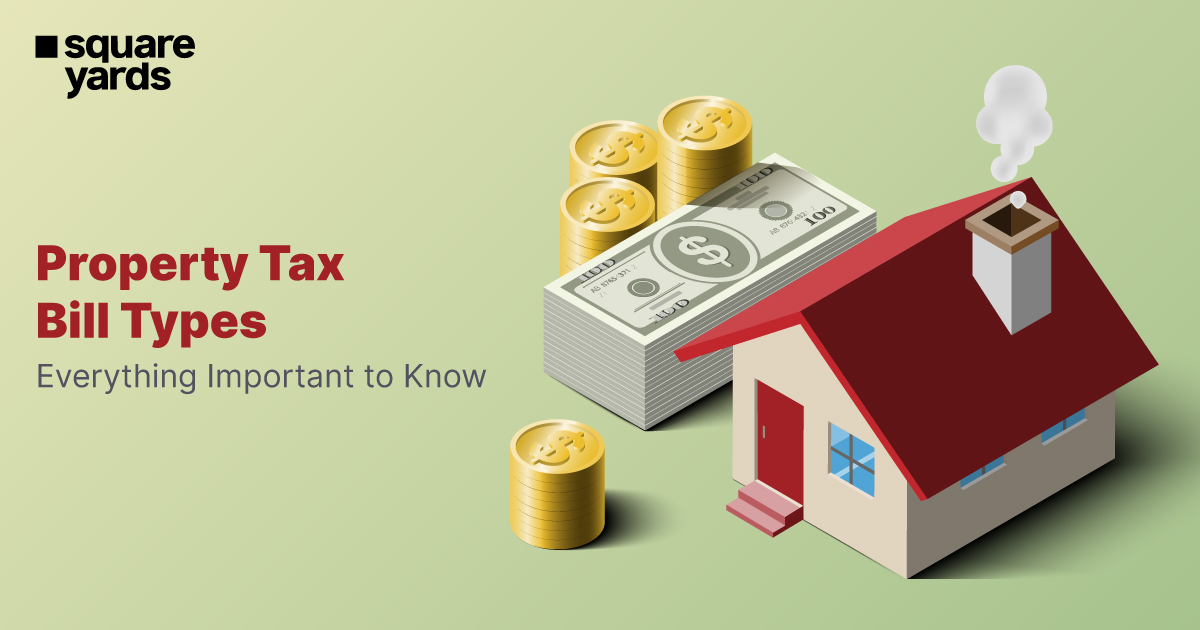
Paying your property tax or utility bill might not be the most exciting task on your to-do list, but it’s

Regarding Toronto, property transfer tax takes center stage during property transactions, encompassing sales and purchases and extending to capital gains.
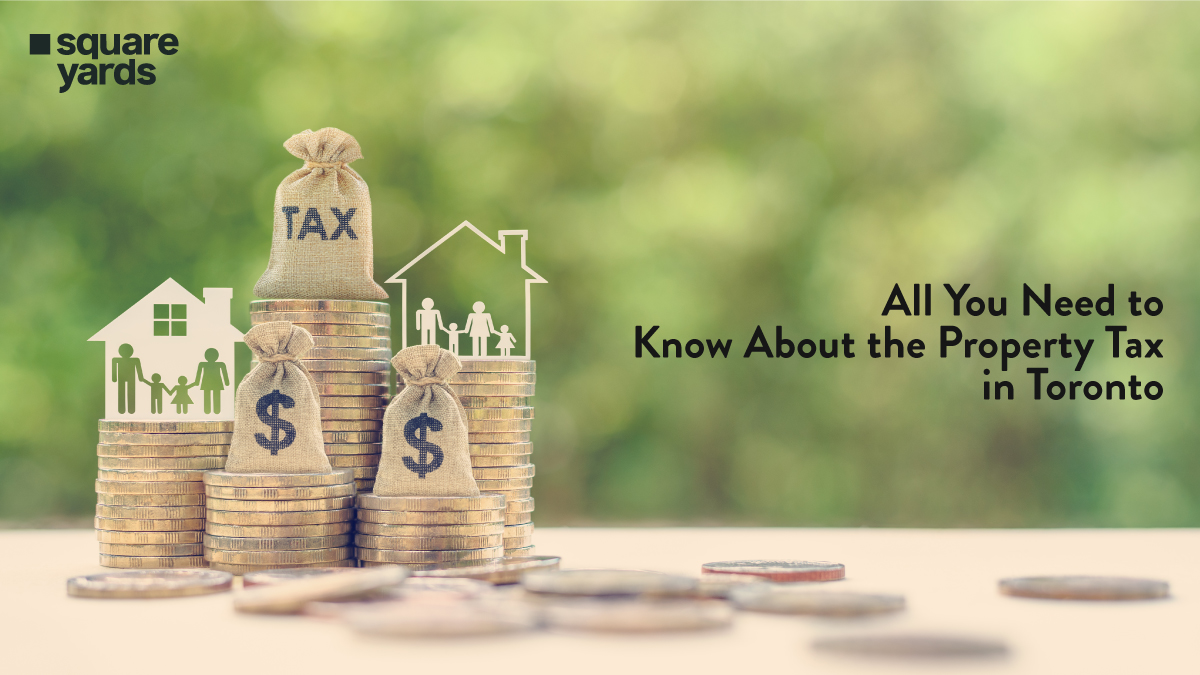
Property taxes are charges or levies imposed by the local government for upkeep, infrastructure improvement, and educational purposes. They are
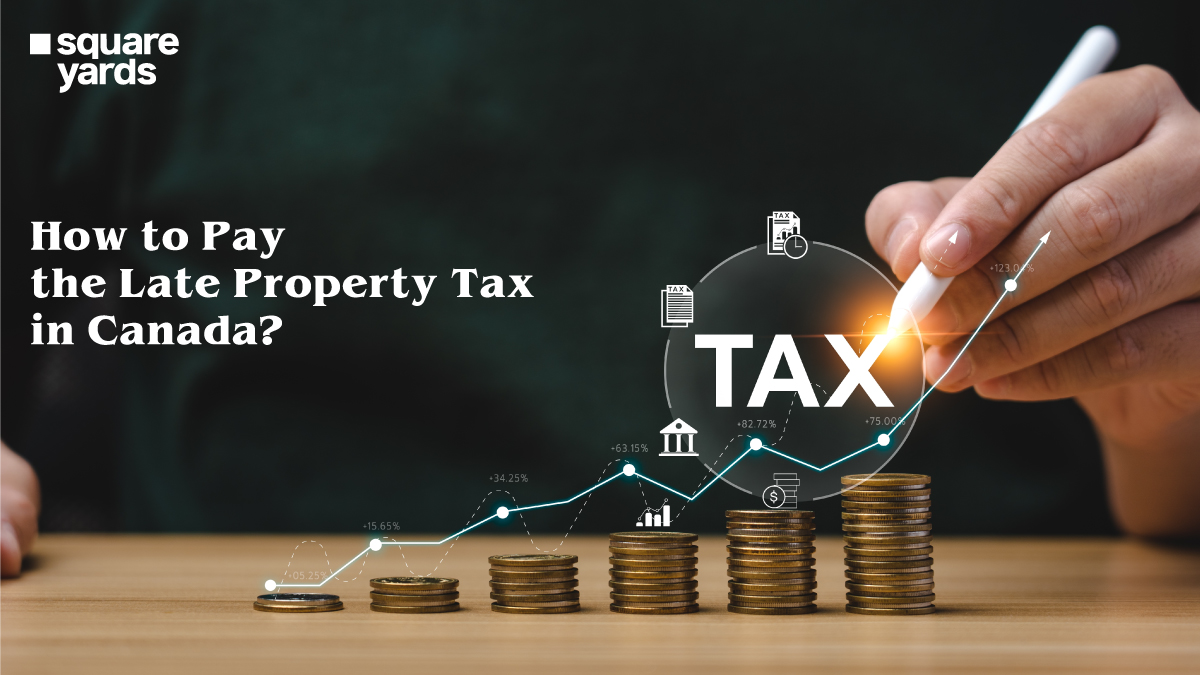
Obtaining all the necessary permits for a construction project is a significant milestone for developers. Still, there is one more
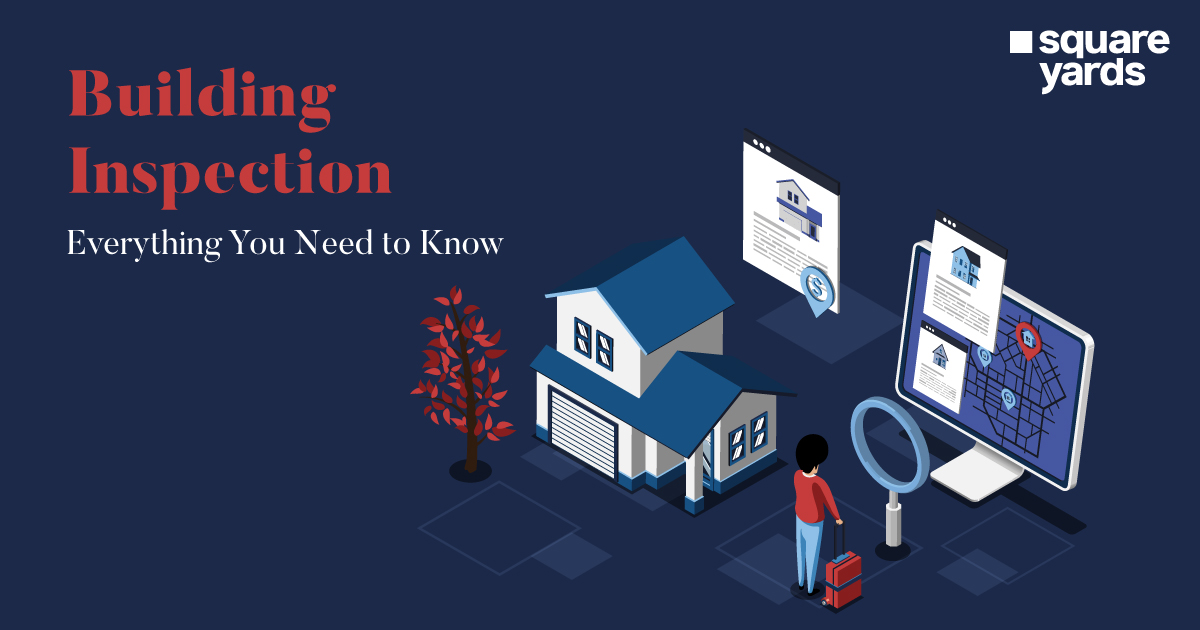
Canada is a beautiful country that is well-positioned and doing great on global surveys of progress, safety, and quality of

A Conditional Permit (CP) is a building permit issued where all the approvals were not received. CPs are used for
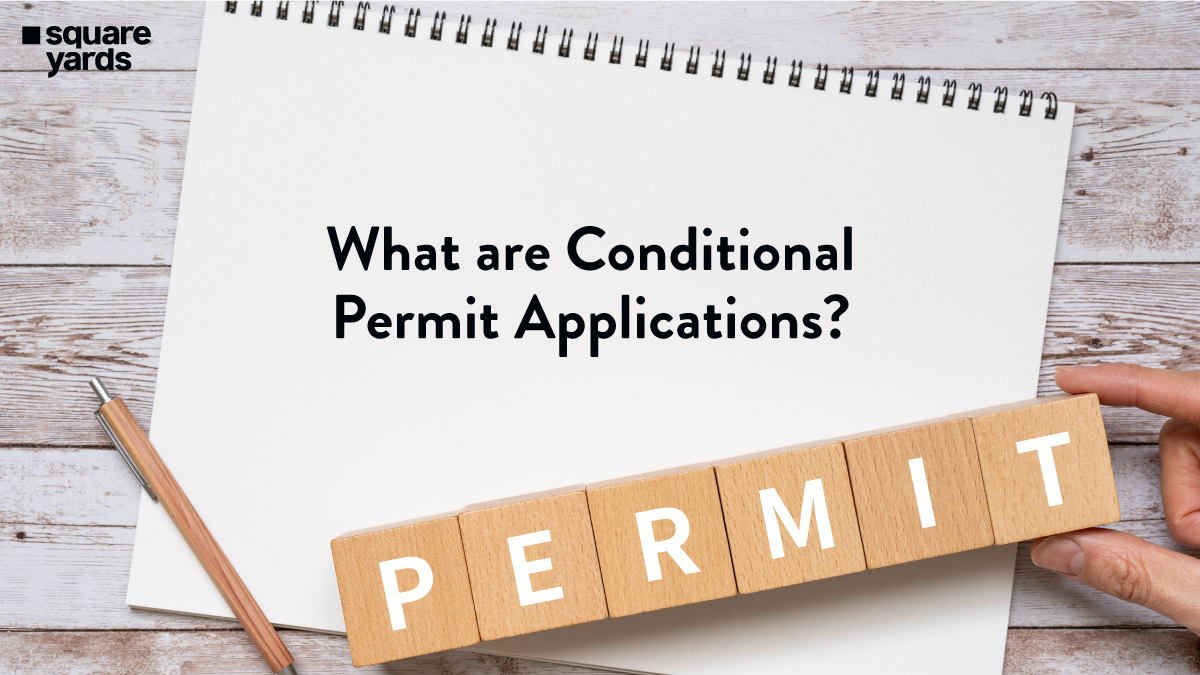
Since so long ago, Toronto, a city of towering buildings and legendary real estate masterpieces, has served its residents. When

Multi-tenant housing is when four or more people bunk together in one house and share the washroom and the kitchen

A tax is a mandatory financial charge or some different type of levy imposed on the taxpayer by a government

Toronto Property tax refers to the fee that residents of a country owe to their government. The amount of the

All properties in Ontario must be valued and assigned a classification by the Municipal Property Assessments Corporation (MPAC) Opens in
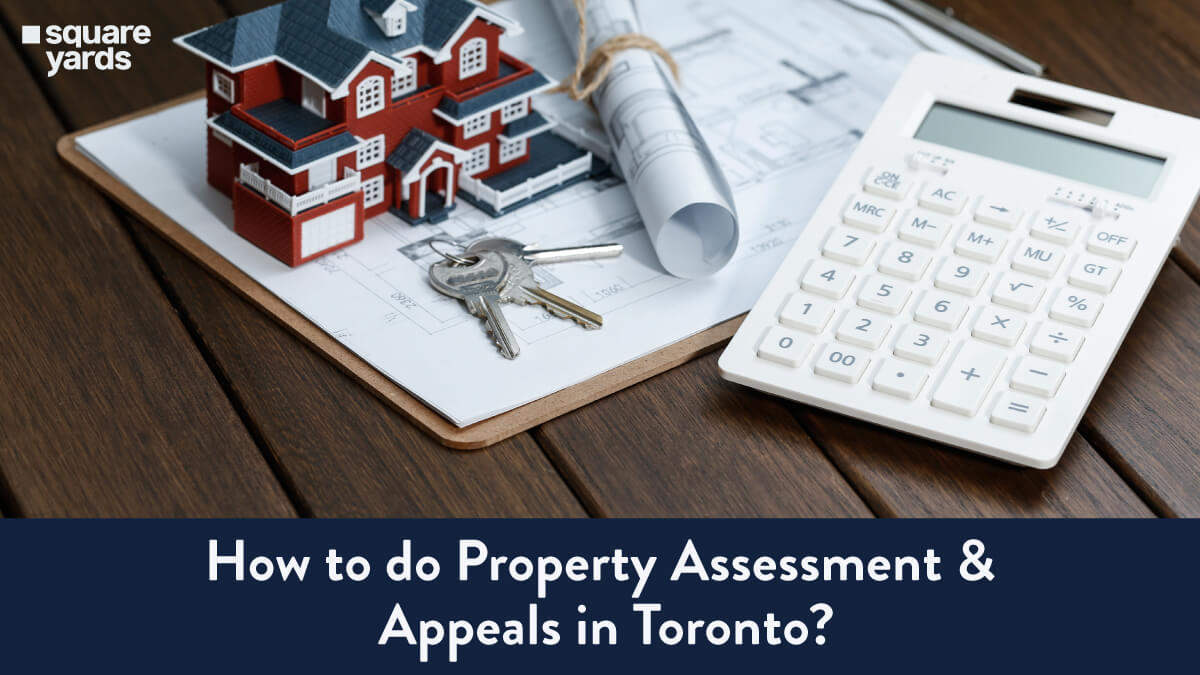
The Sign By-law, which lays out rules for signs used for business identification or promotional reasons, was passed by the

By requiring building inspection permits and demolitions for building, as well as by looking into emergency orders and work done

One of the most crucial steps in the building process is obtaining a building permit. A building permit is a
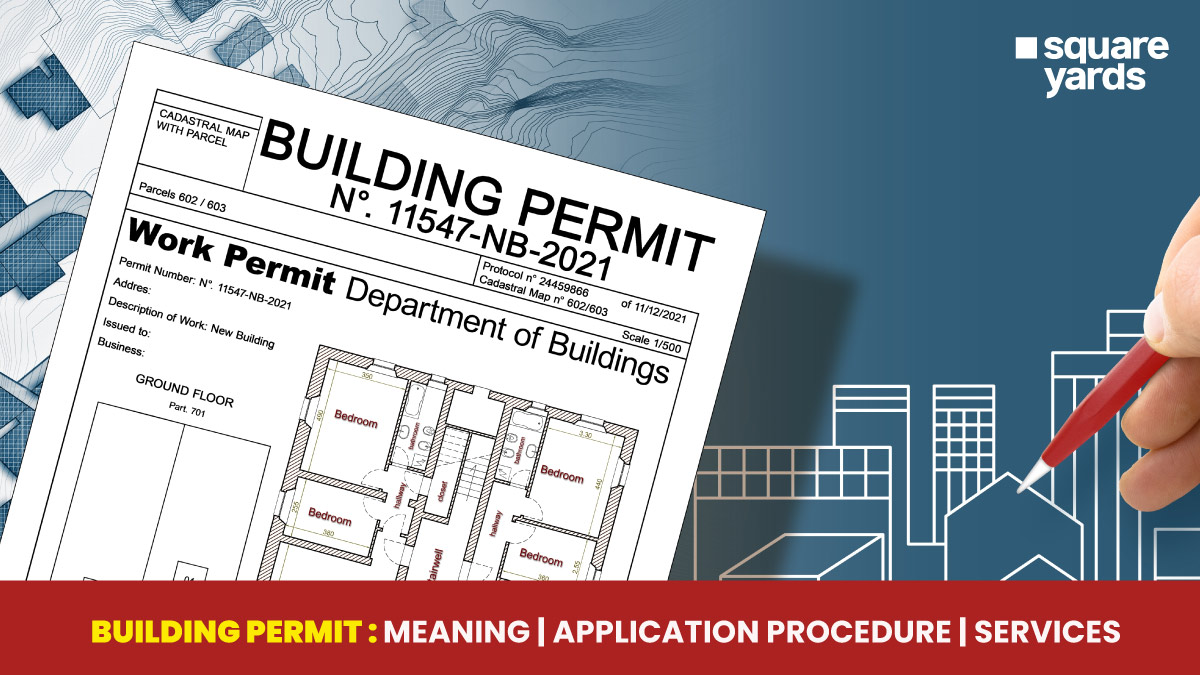
You must have seen organisations that choose to invest in real estate properties. Do you know what exactly the framework

Shifting is a global issue, especially for tenants with a travelling professional who needs to find a new settlement within

Picture walking through an ornate gateway and strolling along a circular driveway leading to a remarkable design home. At first glance, 1370 Oak Lane in…

Buying a new home while selling your current one can be challenging, especially when closing dates do not match. Bridge Financing guide helps homebuyers manage…

Losing a job can be a distressing experience, particularly when managing housing costs. Whether you have a mortgage or pay rent, housing expenses often comprise…

Metro Vancouver is considering extending the Development Cost Charges (DCC) in-stream protection period. This proposal aims to secure funding from the Canada Housing Infrastructure Fund…

Once a playground for the global elite, the Toronto real estate market faces an unexpected slowdown. What was once a hotbed for high-net-worth individuals eagerly…

Miami homes have been recognised as a prime destination for real estate investment, attracting both domestic and international investors with strong rental incomes and luxury…

Have you seen a run-down house transformed into a beautiful home and sold for a profit? If the answer is yes, you have witnessed house…

For years, Toronto condo market has been a playground for investors, fueling pre-construction sales, driving prices up, and shaping the city’s skyline. But today, that…

Vancouver is no stranger to innovative housing solutions. Due to its growing population, rising housing costs, and limited land availability, the city continuously seeks to…

Moving into a new home is exciting but comes with unexpected costs. While most people plan for rent, other fees like application charges, security deposits,…

Vancouver, a city of glittering towers and growing tent cities faces a paradox. A new luxury development once promised inclusivity but now leaves social housing…

Ontario is facing an unparalleled housing crisis, yet an overlooked paradox exists: over 5 million bedrooms sit empty across the province. This figure equates to…

The sharing economy has revolutionised how we travel and live, and Airbnb Home in Canada has become a dominant force in this transformation. According to…

Choosing between a starter home vs forever home in Canada is a crucial decision for any homebuyer. A starter home is a smaller, more affordable…

The Fana Group of Companies has recently proposed a four tower condo in Etobicoke West Mall neighbourhood, providing 1000 residential units. Originally submitted in December…
